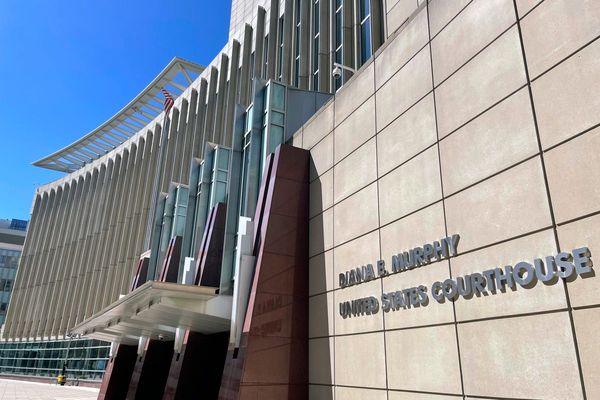
Labour has accused Liz Truss’s government of acting like “gamblers in a casino” over the UK economy after the pound dropped to its lowest level against the dollar since decimalisation, following Friday’s unofficial budget.
With ministers still refusing to comment on the plunge in sterling after the announcement of £45bn of largely unfunded tax cuts by Kwasi Kwarteng, Truss’s chancellor, the pound fell to as low as $1.0327 on Monday, the lowest since Britain went decimal in 1971.
It nudged up slightly to $1.07, but remained around 7% lower than before Friday’s announcement, with markets seemingly badly spooked by the government’s economic plans.
With economists predicting the Bank of England might need to make an emergency interest rate rise, and the cost of government borrowing also soaring, the Liberal Democrats called for the recall of parliament from the conference recess.
Rachel Reeves, the shadow chancellor, who was to deliver her main speech to the Labour’s conference in Liverpool on Monday lunchtime, was disparaging about comments in newspapers in which unnamed allies of Kwarteng blamed “City boys playing fast and loose with the economy”.
She told Times Radio: “Instead of blaming everybody else, instead of behaving like two gamblers in a casino chasing a losing run, the chancellor and the prime minister should be mindful of the reaction not just on the financial markets but also of the public.
“Financial markets are unimpressed, the British public are unimpressed and the chancellor and the prime minister need to take note because they’re not gambling with their own money, they’re gambling with all our money. It’s reckless and it’s irresponsible as well as being grossly unfair.”
Reeves said she was “incredibly worried” both about the unofficial budget, which targeted tax cuts predominantly at wealthier people, and the subsequent market reaction.
The drop in sterling would “more and more of government spending will go on servicing the debt rather than going on public services, which are on their knees right now”, she said.
In an interview on Sunday, Kwarteng had refused to comment about the initial sell-off of the pound after his statement on Friday, saying that as chancellor he could not comment on market movements.
Wendy Chamberlain, the Liberal Democrats’ chief whip, said: “The government must urgently recall parliament so Kwasi Kwarteng can fix this failed budget, before it does any more damage to our economy and people’s livelihoods.
The work and pensions secretary, Chloe Smith, undertaking the government’s morning broadcast round on Monday, took the same stance.
Asked about the pound, she told Sky News: “I am not going to be able to comment on particular market movements and there are various factors that always go into those.
“But the government is absolutely focused on delivering the growth package as we set out, with various ways that we will be helping both businesses and households to move ahead to growth, and, as I say, to greater opportunity.”
Reeves told BBC Radio 4’s Today programme that Kwarteng had exacerbated the crisis by using his interview on Sunday to promise further tax cuts, saying, “There’s more to come.”
“I do think the chancellor fanned the flames on Sunday by suggesting there may be more stimulus, more unfunded tax cuts,” she said.
Challenged on how Labour would fund its tax plans in government, given it pledged to maintain Kwarteng’s 1p cut to the basic rate of tax and the reversal of the recent increase to national insurance, Reeves said revenue would come from the reinstatement of the 45p top rate of income tax and an extended windfall tax on energy firms.
In an “emergency situation” such as the current energy and cost of living crisis, more government borrowing was merited, Reeves said, but insisted the question was how much.
“In the round, we would not be making the increases in borrowing that the government is making,” she said, adding: “It’s the scale of the borrowing.”







